#david levien
Text
Ocean's Thirteen (2007)

Inexplicably, the Ocean’s franchise didn’t sink into oblivion after the sewage that was Ocean’s Twelve. This third chapter in the series fares much better than its predecessor but never reaches the level of the original (neither the original original or the 2001 remake). Still, as another installment, it does offer the remaining fans more of what they want to see, which is something.
After Reuben (Elliott Gould) loses his investment in a new hotel-casino to his business partner, Willy Bank (Al Pacino), he suffers a heart attack and becomes bedridden. Danny (George Clooney) and the rest of the Ocean Club decide to get even by ruining Bank and his new establishment.
If you’re not endeared to the Ocean’s crew, this plot will be an uphill battle. "Boo hoo. Poor Reuben is so upset he’s not making millions off this gaudy casino that he’s become catatonic. Guess it’s up to his buddies to get revenge on his behalf instead of just convincing the proper authorities that he was strongarmed into signing a contract?" Towards the end of the film, the crew’s old nemesis, Terry Benedict (Andy García, whose character is brought back under dubious pretenses), sees millions of his money donated to charity without his consent. I wonder if any of the cash the protagonists end up swiping from Banks would’ve gone anywhere except their pockets had they not had a score to settle. While some of this is mitigated by the fact that Willy Bank is a jerk, what we're seeing feels like a whole lot of “the 1%’s problems”. There isn’t a love plot to make us believe this is about anything but money unless you count the brotherly love between the Ocean’s crew. Even that seems like a stretch.
In the first movie and even in the second in a “sure, whatever”, kind of way, it made sense for these 11 people (we’ll get to that number in a moment) to join forces. Now? It seems overly optimistic to think the random Chinese acrobat who doesn’t speak English would put himself at risk as he does here. Now to be fair, this story makes much better use of its characters than Twelve did. No one gets stuffed into a bag and shipped off to nowhere halfway through, for example. Everyone has a role to play and it works though it should be noted that neither Julia Roberts nor Catherine Zeta-Jones return.
You’re wondering who the two new members of the crew are. One is the aforementioned Benedict, who plays the role of a benefactor. The other is… Eddie Izzard as Roman Nagel. I think. The motif of adding a new expert to the crew with each sequel has basically disappeared, and for good reason. This series can barely handle the people it has on its roster. Adding more is becoming increasingly problematic but it’s also necessary. See, “The Bank” has insane security measures, the kind no one in their right might would even try to circumvent. On the one hand, this makes for exciting scenes that make you wonder how the lock will get cracked. On the other, it makes the plot feel manufactured. For example, there's this super secure room that contains expensive jewelry. The plan to get in? Have Linus Caldwell (Matt Damon) and his phoney-looking rubber nose seduce Bank’s right-hand woman, Abigail Sponder (Ellen Barkin). With the help of some magic pheromones, she’ll get so hot and bothered she’ll have no choice but to bring Linus into the only room in the whooooole building that's guaranteed to be deserted. Apparently, there are cameras in the bathrooms, the closets and her private office. It’s a horrible subplot made unintentionally comical by the fact that nothing happens between her and Linus. The movie teases nudity for at least 15 minutes. Ellen Barkin's chest is ALMOST falling out of her dress for so long it’s ridiculous. I thought she was slobbering at the mouth for some man meat but she’s not even taking off her clothes? What’s going on here?!
I’ve been mostly bad-mouthing Ocean's Thirteen because the film is constantly on the brink of crumbling under its own weight. I will still call it a “good” sequel because fans of this series will be happy with it. You hate the bad guy, there are enough laughs to keep you smiling consistently and the con is so complicated it’s fun to see all the pieces coming together. All of the actors are obviously having a great time. I’m in no hurry to watch it again but if you love love love the first, you didn’t mind the second and you want to know if you should watch the third, then I say “sure”. I say this despite feeling like twice was too many for me. (April 29, 2022)
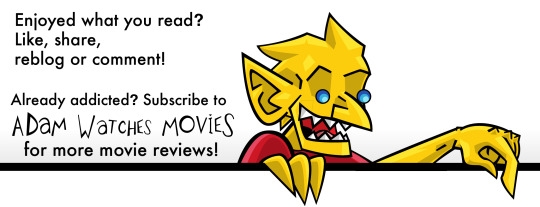
#Ocean's Thirteen#movies#films#movie reviews#film reviews#Steven soderbergh#Brian Koppelman#David Levien#George Clooney#Brad Pitt#Matt Damon#Andy Garcia#Don Cheadle#Bernie Mac#Ellen Barkin#Al Pacino#Casey Affleck#Scott Caan#Eddie Jemison#Qin Shaobo#Carl Reiner#Elliott Gould#2007 movies#2007 films
3 notes
·
View notes
Text
“Billions” ends not with one man reigning supreme, but two titans shaking hands. Chuck (Paul Giamatti) and Axe (Damian Lewis) joined forces early in Season 7 and — despite a history filled with trickery and betrayal — remain loyal to the very end. Along with their devout team of stock traders and political savants, the duo takes down Mike Prince (Corey Stoll) and his bid for the presidency, before parting ways as friends. Chuck will continue working for the state of New York, while Axe is back behind the soon-to-be sleek desk of his hedge fund.
For a series that began with promises by both men to utterly destroy the other, some fans may be miffed that neither star is crowned as champion. But for showrunners Brian Koppelman and David Levien, the “Billions” series finale isn’t all sunshine and rainbows. It’s an embodiment of what the series has been all along: a massively entertaining reflection of the way the world works. For every cheery, satisfied smile, there’s deeper meaning tucked within the folds. So IndieWire dialed up the co-creators to break down the ending, the final season’s big swings, and how they managed to fill “Billions” with so much beautiful music.
IndieWire: For the final season, when and why did you decide it would be best for Chuck and Axe to team up, rather than go after each other?
David Levien: We felt like the real mano-a-mano thing between Chuck and Axe reached its fullness during the end of Season 5, where neither guy lost completely, but neither guy won completely. It was like pure victories and standoffs and grudging respect for the opponent who played you to your very end. Then over the course of the sixth season, as Mike Prince started to reveal the darker hues of his character and how he could be a danger, we realized we had a formidable enough foe that these others could team up against him. In a certain way, that’s the most fun because the barbing is still there, but they have a common cause.
What did you hope fans would be left thinking about?
Brian Koppelman: Probably in that Wendy [Maggie Siff] and Taylor [Asia Kate Dillon] leave, and Rian [Eva Victor] leaves. It seems to me we feel pretty good about the fact that they leave, and that Sacker [Dola Rashad] understands where Sacker needs to be. Scooter is a very important character to us. Daniel Breaker’s a genius, and Scooter says what he says to Prince [quitting to consider when and how their moral compass went awry], and he is going to do what he’s going to do. To us, we tried to get each of them a moment where the audience can think about what it means for their trajectory from this moment forward.
From the jump, the last episode leaves little doubt that Chuck and Axe are going to win. How did you decide on that approach, that tone, for the finale, rather than teeing up a big reversal or twist as in past seasons?
Levien: If it were a season finale and we were doing this, then we could have dedicated half of the real estate toward the Prince side of the reversals, but we had to devote the other half of the real estate to the valedictories and the goodbyes. So we made the conscious decision for them to have this attitude, right from the beginning, that the outcome’s not in doubt. Basically, once they securely got Prince into Camp David without his phone, with no contact to the outside world, they knew how the rest of the dance steps were going to unfold. We didn’t want to drag that out and then have all these characters that we’d been with for seven seasons not get to have resolution on a character level.
Koppelman: Two things: 1. If you’re watching the show, you know Prince ain’t winning. So to [make it appear otherwise] felt disingenuous to the audience. Between the penultimate and ultimate episodes each season, we could fuck with it, but this is the end, so they’re going to win. 2. I would say this, Ben: On a plot level, 100 percent, you’re right. We made the decision to let you know who the winners and losers are going to be. But there’s something else that’s been going on the whole time. The show has a lot of morality questions underpinning it, and so their souls are in peril for a lot of this episode.
This is one of the tricks about the show, right? From Season 1, people viscerally bonded with this guy, Axe, because of his backstory and because of the corrupt forces that were after him. So viscerally, they hung with him, even though he let Donnie die and all this stuff. What we hope happens is that one asks oneself, “Why do I feel this way about this guy? What does that say about the world we’re living in? And about the value system we speak versus the value system that we actually feel and live? So Bobby Axelrod, for all this talk about freedom, where’s he end up and what does he say as his final line? [Axe ends up running Axe Capital again, and his final line is to his employees: “Let’s make some fucking money.”]
So it’s working on this level, but it’s also working on that level. We have this thing about our work: People often misread it early on, but we’ve had a long enough run that eventually it lands. So, some people had to review “Super Pumped” on only five episodes, but if they watched the last two episodes, they would know that it was about something else. We accept all that. What we write is entertaining and some people want to indict us for it being entertaining, but we are interested in these moral questions. It’s in our work. It’s in everything from “Rounders” to “Knockaround Guys” to “Solitary Man” to “Billions,” even to “Tilt.” It’s just in there. Ultimately, we think people will figure it out, but we want to entertain, too. It’s important to us that it’s entertaining and that it’s not work.
These days, there’s so much to watch and so much emphasis on trying to get through everything. You kind of have to hope everybody processes not just what happens, but what it could mean, before auto-play pulls up the next show in their queue. We all need time to let stuff settle in, and the “too much TV” era doesn’t always encourage that kind of contemplation.
Koppelman: It takes time. In doing this, you have a choice between spoon-feeding [points] to the audience and just choosing to trust they’ll appreciate them over time. The immediate moment we live in makes it hard. It makes it really hard. But I go back and watch shows all the time, and so does he, and so do our friends, and so do you. We all do it. Then, five years later, you notice something new and go, “Oh fuck.” That’s a great thing, and we’re comfortable [with it.] We made indie movies for a lot of our careers, so to us, the fact that we’ve developed an audience that’ll watch this shit is amazing and thrilling. Yeah, the plot is one thing, but the other stuff at stake matters as much to us, and we hope eventually it does to everyone else, too.
Levien: There’s also just the mechanics thing of the audience learning how it happened. It should be very satisfying for them, even if they have a lean on which way it may work out. That’s something that we came to understand heavily when we were writing “Oceans 13” and working on it with [Steven] Soderbergh. Because that’s not a movie where you’re wondering if George [Clooney], Brad [Pitt], and Matt [Damon] are going to win or lose. They’re probably going to pull it off. But it’s like, “How are you going to get there? How are you going to turn the cards over to delight the audience?”
Koppelman: That scene in “Oceans 13” when the guys are by the Bellagio Fountains — early in it, not the end — I remember George really talking about finding these little moments where you understood why it mattered to these guys. It was great. Hearing George talk out the way he thought about character has stayed with us for a long time. Within these entertaining things, you can find ways to land something significant — you hope.
Given the significance of music in “Billions,” how long have you known your final song was going to be “Take the Money and Run”?
Koppelman: Did it work for you?
It did. I thought it matched the vibe of the episode and leaves the audience on the upswing.
Koppelman: That’s what we think, too. We think a lot about the music, and we wrote the song into the script. The two of us are sending songs and playlists back and forth all the time, and we’ve been like brothers since we were 15, so the resonance the songs have are similar for the two of us. It’s not that we thought of it so long ago, but when we thought of this song, the moment one of us said it to the other, it was like, 100 percent. There was no doubt.
Levien: We can’t say we thought of it when we were making the pilot. It’d be very cool if we had, but we weren’t driving toward this the entire time.
Koppelman: But it is always satisfying when you write them into the script and then it works as well as you hoped. It goes to the heart of this final season. We really were thinking about “Billions” obsessive fans this season. We decided that that’s who we are, and we wanted to make the show for folks who cared a lot about the characters, the world of the show, the language of the show. The show exists in a slightly canted world — even though we never cant the camera — and that song exists in that kind of space, too. So it all kind of felt like it worked together.
This may be a question just for me, but how often were you able to write songs into the script and actually get the music? Because the licensing, the budgets, all of that can be such a pain in the ass.
Levien: We didn’t run into that problem. Maybe it was just an instinct thing, but we would write some big ticket songs into the scripts and then sometimes they’d be very obscure songs, so it tended to balance out.
Koppelman: But also I would say right from the very beginning, we went to Showtime and said, “Look, we’re going to use music in a certain way. Let’s know going in how important the music’s going to be. Let’s have a music budget that allows us to take those shots during the year. We’ll manage it. If we’re going to hit the hard ceiling, we’ll call you way in advance.” And then they did a really cool thing. Not every network does this, but Showtime came to us and they said, “Any product placements you do on the show, we, Showtime, won’t take that money. You can use that money for songs.”
Oh, wow.
Levien: They said, “You can apply it to your show budget.”
Koppelman: So if you saw a car on the show and were like, “That seems like a product placement.” Well, that’s the money that got “In the Evening” by Led Zeppelin in the show. So our post-supervisor would tally [the budget] and go, “Here’s where we are. Here’s what the product placements are covering. OK, it’s going to be really easy to use that U2 song.”
Dave and I picked every song, so [our music supervisor] Jim Black didn’t have to worry about that, but what he was amazing at was the clearances. He built relationships over a long career and he expressed to people what music lovers we were. Then Jim would say to us, “Hey, to get this Neil Young song, if you really want ‘Old Man,’ you should write Neil Young a letter and I’ll get it to him. So we would write letters and they were earnest because we meant it.
Levien: We were putting [these songs] in because they mattered to us, so it was easy to express that to the artist.
Koppelman: We could describe to Neil Young, “Here’s what’s playing, here’s what’s at stake in this scene, here’s why we’re using the song. We think [our scene is] in the spirit of the song.” I remember doing that, and the next day they cleared the song for a very reasonable price.
Then the music business noticed that when we would feature a song in a certain way, that song did well that week. Then some artists became fans, or their managers did. “Atlantic City” was the first Bruce Springsteen song we [asked for], and we heard that he was reading the script on vacation. He went outside his place, and he was reading it. Obviously, that’s nerve wracking, but then we got word back [that we could use it], and when I met him a couple years later, he told us that he and Patti watched the show on Sunday nights.
Among the big swings in the final season, the restaurant montage at the start of Episode 9 stands out. What were the origins of that?
Koppelman: We had a suspicion that people might be moved by it, but it was beyond what I thought. That [montage] was written into the script. That song [“I’ve Loved These Days” by Billy Joel] was written into the script. Look, let me start from the fact that we’re two Long Island kids growing up, so that creates a certain association with Billy Joel and the way Billy Joel saw New York. We’d had that song saved for a while, for the last season, and Patsy’s is an incredibly important restaurant to us, so it’s got to start there. My dad started taking me to Patsy’s. My dad, who we dedicated the first episode of the season to, he passed away between Seasons 6 and 7. So Patsy’s matters a lot to us and what it means in New York. There are amazing stories about Sinatra and Patsy’s that are just mind-blowing.
Levien: So we were intending to use it in a meaningful way, and we were saving it.
Koppelman: It led us to think, “OK, this is a moment to just give a hug to everybody, to say goodbye to the show together.” That’s what it felt like, and that’s what that restaurant kind of feels like. While writing that episode, one of my son’s friends, his dad had just passed away very close in time to mine, and I went to this kid’s dad’s funeral. Then on the way home I was alone, and I went to Patsy’s and I just sat at one of these tables by myself and texted Dave from there.
If you write something like [“Billions,”] it’s a part of you for so long. When he was writing this first novel years ago, before I was a writer, David said to me, “When you’re in a really good one, where it really feels like you’re connected to it, everything that happens in your life finds its way into the work in some way.”
#billions#7x12#brian koppelman#david levien#chuck rhoades#bobby axelrod#mike prince#wendy rhoades#taylor mason#rian billions#kate sacker#scooter dunbar#soundtrack posting#7x09
2 notes
·
View notes
Text
Luck always seems like it belongs to someone else.
― David Levien



Not sure how many people this is directed to will actually read this, but here's the thing. I am so very behind on reading so many wonderful fics out there, and I just want all you amazing writers to know that I will eventually catch up.
With things in my life going the way they are and not giving me any time-out, I feel like I need to focus on me and my own writing. I very much need to finish my Damerey WIP, even if none of you will read it. Ironic that I care so much about how you all might feel if I don't read your stuff when very few of you ever read mine. But that's neither here nor there. When I start posting this story, whether it gets a good reception or not (I've been surprised before), I'll feel more accomplished; it's always a great feeling when something you've worked on for such a long time is complete.
For those of you who do read my stuff and are looking forward to this story, thank you from the bottom of my heart. I don't know what I would do without you all.

gif by @damerey-daydreamer
4 notes
·
View notes
Text
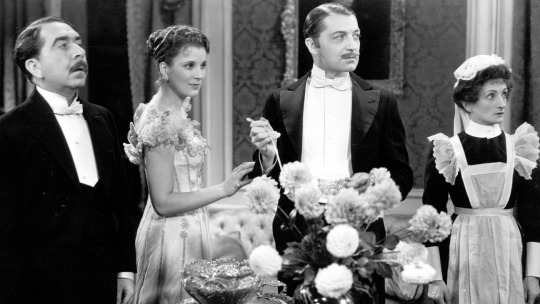
Herbert Mundin, Diana Wynyard, Clive Brook, and Una O'Connor in Cavalcade (Frank Lloyd, 1933)
Cast: Diana Wynyard, Clive Brook, Una O'Connor, Herbert Mundin, Beryl Mercer, Irene Browne, Tempe Pigott, Merle Tottenham, Frank Lawton, Ursula Jeans. Screenplay: Reginald Berkeley, based on a play by Noël Coward. Cinematography: John F. Seitz. Art direction: William S. Darling. Film editing: Margaret Clancey.
There are lots of forgettable best picture Oscar winners: Who today watches The Great Ziegfeld (Robert Z. Leonard, 1936), The Life of Emile Zola (William Dieterle, 1937), or Gentleman's Agreement (Elia Kazan, 1947)? But Cavalcade may be the most forgettable (and forgotten) of them all. Based on a play by Noël Coward adapted by Reginald Berkeley and Sonya Levien, it's the saga of 33 years in the lives of a wealthy London couple, Robert (Clive Brook) and Jane Marryot (Diana Wynyard). Its portrait of their lives and the lives of their servants may have inspired the popular British TV series Upstairs Downstairs, and through it the even more popular Downton Abbey, both of which cover pretty much the same time period. In Cavalcade, as in the two TV series, the families suffer losses from the sinking of the Titanic and from World War I, and experience the social upheaval of a changing class system. But Cavalcade tries to cram it all into less than two hours, and tends to be more blatantly nostalgic about the passing scene. Unlike the creators of the later TV series, Coward and his adapters didn't have the benefit in 1933 of seeing what effect the events of the first third of the twentieth century would have on Britain and the world. It settles for a bit of prophecy in the form of a montage in which various talking heads rant about disarmament, communism, atheism, Christianity, and other ideologies, including a rather corny scene in a louche night club where same-sex couples seem to be on the verge of making out. (The film is pre-Code, so the strictures against depicting homosexuality haven't kicked in yet, though it's clear that the film -- despite Coward's own sexual orientation -- disapproves of it.) In addition to the best picture Oscar, Cavalcade also won a second Oscar for its director, Frank Lloyd, who had been the first director to be so honored, for The Divine Lady (1929). Wynyard also received a nomination for best actress, losing to a newcomer, Katharine Hepburn in Morning Glory (Lowell Sherman, 1933). Wynyard had a more successful career on stage than in movies. In Cavalcade she tries to register emotion by staring meditatively into the middle distance, often seeming like she has spotted something troubling on the wallpaper. The rest of the cast includes Herbert Mundin and Una O'Connor as the Marryots' servants, and Frank Lawton as Joe Marryot, the younger son, all three of whom would be reunited in a much better movie, David Copperfield (George Cukor, 1935). For the record, some of the films that Cavalcade beat for best picture include 42nd Street (Lloyd Bacon), I Am a Fugitive From a Chain Gang (Mervyn LeRoy), and Little Women (Cukor), all of which are more highly watchable today.
2 notes
·
View notes
Text
Books read in 2022: 42/52
*denotes a re-read
Homesick for Another World by Ottessa Moshfegh
Firekeeper's Daughter by Angeline Boulley
How High We Go in the Dark by Sequoia Nagamatsu
Station Eleven by Emily St. John Mandel*
Upright Women Wanted by Sarah Gailey
The Office of Historical Corrections by Danielle Evans
Six of Crows by Leigh Bardugo*
The Lady Astronaut of Mars by Mary Robinette Kowal
Goldilocks by Laura Lam
Axiom's End by Lindsay Ellis
How to Stop Time by Matt Haig
The Calculating Stars by Mary Robinette Kowal
Foundation by Isaac Asimov
Chase Darkness with Me: How One True-Crime Writer Started Solving Murders by Billy Jensen
Foundation and Empire by Isaac Asimov
Second Foundation by Isaac Asimov
The Fated Sky by Mary Robinette Kowal
The Other Family by Wendy Corsi Staub
The Accomplice by Lisa Lutz
The Relentless Moon by Mary Robinette Kowal
Foundation's Edge by Isaac Asimov
Foundation and Earth by Isaac Asimov
Prelude to Foundation by Isaac Asimov
Forward the Foundation by Isaac Asimov
The Regional Office is Under Attack! by Manuel Gonzales
This is Assisted Dying: A Doctor's Story of Empowering Patients at the End of Life by Stefanie Green
When the Air Hits Your Brain: Tales of Neurosurgery by Frank T. Vertosick Jr
The Good Nurse: A True Story of Medicine, Madness, and Murder by Charles Graeber
Wool by Hugh Howey
Shift by Hugh Howey
Dust by Hugh Howey
Light from Other Star by Erika Swyler
When Humans Nearly Vanished: The Catastrophic Explosion of the Toba Volcano by Donald R. Prothero
Notes from the Burning Age by Claire North
The World Gives Way by Marissa Levien
Planetfall by Emma Newman
After Atlas by Emma Newman
Before Mars by Emma Newman
Atlas Alone by Emma Newman
Things We Didn't See Coming by Steven Amsterdam
The Genius Plague by David Walton
The Office of Mercy by Ariel Djanikian
#leah reads books#i might have actually hit my goal if i hadn't spent three months this summer reading all of the clone wars fic instead of actual books#oh well#posting this a day early because i won't be finishing another book before the end of tomorrow
1 note
·
View note
Link
Billions: Showtime Series Creators on Axe's Return and the WGA Strike's Impact on the Finale - canceled + renewed TV shows, ratings by Regina Avalos, October 29, 2023(Pho... #movie quote #movies #movie line #movie line #movie scenes #cinema #movie stills #film quotes #film edit #vintage #movie scenes #love quotes #life quotes #positive quotes #vintage #retro #quote #quotes #sayings #cinematography
0 notes
Text
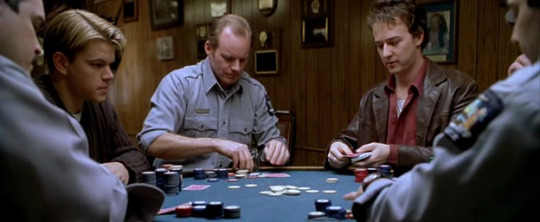
Matt Damon and Edward Norton are seated at the poker table in Rounders (1997). Writers David Levien and Brian Koppelman have cameos in the Atlantic City poker scene as two of the players used to illustrate giveaway tells.
0 notes
Text
Rounders (1998)

Even if you’ve never played a hand of Poker, Rounders will infect you with a love for the game. By the end, you might not know the rules but you will know the psychology that differentiates the winners from the rest. It’s a sports movie that might actually inspire you to have a go at it.
In New York City, law student Mike McDermott (Matt Damon) loses his entire savings to Russian mobster Teddy KGB (John Malkovich). Following the disastrous game, he promises his girlfriend Jo (Fretchen Mol) he’ll quit. Months later, Mike’s childhood friend Lester “Worm” Murphy (Edward Norton) is released from prison. The unapologetic cheat immeditely sets out to make up for lost time - and win the money he owes - by becoming a full-blown rounder once again. One taste and Mike falls off the wagon.
To understand what professionals like about Poker, you need to understand certain things about the game. Your first lesson comes from Worm. He could win fair and square but he’s too impatient. He wants things done fast and you get the sense that deep down, he sees Poker as a different game than everyone else. For him, the objective is to win money as quickly as possible. He likes to punish those who have the audacity to sit down at his table. He knows the game too well for the luck of the draw to make Poker a gamble but he wants the thrill of uncertainty, which is why he cheats. He might even enjoy getting caught. After all, if he pays back his debt to Grama (Michael Rispoli), he won’t need to come up with $15,000 in record time. He’s poison that’s threatening to take down Mike.
From this irresponsible antagonist, we learn that Poker isn’t a gamble, a game you win quickly, or a way to make money. Yes, you can make a living off of the tables - that’s exactly what Mike’s mentor, Joey Knish (John Turturro) does - but even he isn’t quite a “true” player. Joey always plays it safe and always quits while he’s ahead. He would never even dream of playing at the World Series of Poker because it would be a distraction, a title to flaunt instead of a way to ensure he provides for his family. The true player is somewhere in between. Honest and dependent on skill rather than luck but willing to risk it all when the time comes. Rounders is about a lot of other things but at its core, it’s about this journey Mike takes towards realizing what kind of player he will be.
With a big debt that could mean the death of both Mike and Worm, you’ve got high stakes. The strain Mike’s old habits put on his relationship with Jo supplies the drama. KGB provides the ultimate antagonist to defeat in the final round. You’ve got all the ingredients of a great sports film and then, the film takes it one step further. The most accessible of all movie sports - baseball, soccer, and basketball - require only basic equipment. A half court, shoes, and a ball. Shoes, a goal, and a ball. Four bases, a bat, a ball, and gloves. The same applies to Poker. You literally only need a standard deck of cards. You also need a certain amount of skills - it’s the reason they could never make a Snakes and Ladders movie. Becoming a great Poker player is achievable by just about anyone. As Mike describes the way people hold themselves when playing cards, you feel your ability to tell the bluffs from the baits grow. Now you’re seeing the game in a whole new way. It doesn’t matter that you don’t know whether a straight flush beats a full house; what matters is that now you can tell by the players’ faces who’s going to win.
Rounders is a memorable movie that tells you a lot about Poker without ever explaining all the rules and strategies. You’ll be so invested in what’s going on you won’t even notice its familiar structure until the film’s over. Thanks to its great cast, this is one you’ll come back to. (Full-screen version on VHS, May 25, 2021)
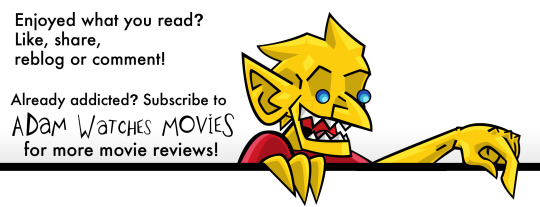
#Rounders#movies#films#movie reviews#film reviews#John Dahl#David Levien#Brian Koppelman#Matt Damon#Edward Norton#John Turturro#Famke Janssen#Gretchen Mol#John Malkovich#Martin Landau#1998 movies#1998 films
1 note
·
View note
Text
There could be only one Machiavellian daddy standing in the "Billions" finale revenge showdown between Bobby "Axe" Axelrod (Damian Lewis) and his hedge fund usurper (and dangerous presidential candidate) Michael Prince (Corey Stoll).
After seven seasons of cutthroat high-finance drama and power struggles, "Billions" went endgame with the titan matchup in Showtime's series finale (now streaming on Paramount+; airing on Showtime Sunday 8 EDT/PDT).
But the entire cast of characters featuring ever-evolving allegiances got its due, including longtime Axe persecutor U.S. Attorney Chuck Rhoades (Paul Giamatti), now working with his former nemesis to bring down Prince. The multi-pronged farewell episode even featured former U.S. Attorney Bryan Connerty (Toby Leonard Moore), who hadn't been a "Billions" regular since Chuck engineered his legal problems and prison stint in Season 4 for illegal wiretapping. Connerty made a surprise appearance to receive his reinstated law license, also engineered by Chuck as a peace offering.
"This show was for the show superfans; we found the ultimate landing spot for all these characters," says Brian Koppelman, who created the series with David Levien and Andrew Ross Sorkin.
The final positions from the "Billions" finale:
Axe made Prince a pauper, and resumed his office chair throne
Prince helped orchestrate Axe's downfall in Season 5, which allowed him to get his greedy hands on Axe Capital. As Axe, the heavy-metal-T-shirt-wearing Road Runner of finance, realized he had finally been defeated by Prince, he uttered the line "So this is what it is like to lose."
In real life, Lewis was leaving "Billions" to return to life in England for personal reasons. So Axe was written off (exiled to Switzerland) to avoid arrest by Chuck, thanks to a tipoff from Prince. Prince took over Axe's throne and renamed the kingdom Michael Prince Capital (MPC).
With Lewis and Axe back for the final season, the downfall script was reversed. Axe returned to New York, with Chuck's help and urging, to join the team trying to stop Prince. The Never Princers, who included MPC's general counsel Kate Sacker (Dola Rashad), conspired to annihilate Prince's stock portfolio while the unsuspecting presidential candidate met the U.S. president at Camp David, as his mobile phone was locked up by Marine security.
With the trap sprung, Prince flew into MPC in a rage. Showing the volatile side no one wanted to see responsible for nuclear weapons, Prince threw a printer through the office window of Chuck co-conspirator and ex-wife Wendy Rhoades (Maggie Siff).
Prince bottled his rage seeing Axe and an office full of former employees present to witness his financial demise and presidential ambitions crushed in one bad news day.
"So yeah Mike, this is what it's like to lose," Axe said to Prince, parroting his own line, with a very different subject.
"I bet that felt good," Prince sneered back.
"What does it say about someone who wants to throw somebody's words back in their face? Not great things," says Levien of the line. "That's why we found it so satisfying."
Big winner Axe reclaimed his office chair with no trumpets, but only his faithful lieutenant Mike "Wags" Wagner (David Costabile) standing just behind him.
While Prince hid dark ambitions behind noble ideas, Axe sent his traders out with the capitalist battle cry "Let's make some ... money!" with The Steve Miller Band's ode to bandit living, "Take the Money and Run," playing as the exit soundtrack.
"That song felt just absolutely perfect for the show," Koppelman says.
Prince went down defiantly, vowing revenge
With Humpty Dumpty falling off the financial wall and Prince's world in tatters, even his loyalists disbanded. Right-hand man Scooter Dunbar (Daniel Breaker) saw the light and realized how far the power duo had drifted in its quest for power. Finding he has been spared financial ruin, Scooter announced he's embarking on his dream of conducting an orchestra.
In classic villain mode, Prince admitted defeat but vowed to return and financially crush Axe and anyone else who knocked him. "This country is built on second acts, and when you see mine, you better duck and cover," Prince said.
"People like Prince are not laid low by things that would lay all of us low," Koppelman says. "In three years, the guy will somehow have bought The Sphere off James Dolan."
Chuck and Wendy end up laughing over dinner
Chuck, the main Axe battler in many season finales, relished the slightly less sexy victory over Prince. Chuck also finally came up triumphant in his personal life. Wendy and Chuck's marriage, and vigorous BDSM sex life, had ended acrimoniously after Wendy worked for years as Axe Capital's high-end performance coach.
But "Billions" ended with the two exes smiling as Wendy walked out of Axe Capital moments after turning down Axe's return to work offer. Wendy and Chuck agreed to go on a family dinner with their two children.
The final shot featured Wendy and Chuck laughing at dinner with their kids, as noted chef Connerty performed impressive culinary tricks on the teppanyaki (Moore's real-life cooking skills were often highlighted).
Wendy and Chuck don't resume life as a couple, "but they settled their issues, coming to a great place of mutual understanding, fondness and co-parenting," Levien says.
#billions#7x12#brian koppelman#david levien#bobby axelrod#mike prince#chuck rhoades#bryan connerty#scooter dunbar#wendy rhoades#and none for taylor i guess :(
3 notes
·
View notes
Text
0 notes
Text
also given that the logic of said superiority authoriority is an entitlement to deny someone's personhood & use them as an object for your purposes, from obviously getting to direct what they must do & can't do, to enjoying whatever gratification from lashing out / demeaning which is also going to serve as an affirming exercise in authority when one can do that from an insulated elevated place....a crucial part of whatever form of this violence, from the most nanoscopic triangle in the sierpiński triangle pyramid scheme hierarchy, to the hypothetical largest (zoom in or out to whatever degree: the same shit also), being that indeed the superior parties need the deserved insulation from any Consequence to exerting their superior status, including indeed from having to witness the consequences For the "inferior" parties, such as whatever externalizations of suffering they recognize as such, which either (a) need to be put away (b) are manipulative performances or otherwise exaggerated (e.g. being a pussy / not even having the sense to realize how little suffering they're Really experiencing) or (c) can be fun to witness if you decide you enjoy that as an affirmation of power as per your ability to completely detach from any avoidance of causing pain, harming for its own sake, b/c you Can
all which is to frame how Interesting it is that after all those moments of going "well, they keep bothering with reaction shots of winston noticeably feeling hurt & expressing it, sometimes also verbally. it's like it could be setting up something" it set up Nothing; while once again just like has been done dozens of times a scene just Ends on winston being rejected &/or hurt, no resolution then, no resolution ever, and in the case of 7x03 was so significant an attack that just like in 4x11 when mafee gets to take out his own Loyalty Insecurity on winston while everyone else hangs around in tacit to overt approval, everyone just leaves the room & we get winston staying behind in the Most distant position aaand scene's over! thread's over! david levien get back here after you Liked that 4x12 livetweet of mine pointing out "so see & winston was right anyways??" like....that is: we are given the Perspective of someone who is also now Leaving winston behind, thus immune to the consequences of however that treatment could actually affect him or how he might struggle to deal with that now (who cares! the answer is: Alone) like Whatever, next time we see him he's completely fine now. and i'm just so happening to think that all the little moments of getting to see winston wither & withdraw & etc in reaction to being shitted on was also us being granted the perspective of Gratification that he's punished for speaking or existing or whatever, without it ever going anywhere or mattering beyond that instant. we too are the ones who surely get to relentlessly bully the autistic person & damn if we don't at least enjoy someone getting to go off the rails restoring their ego by doing absolutely whatever they want to him, which just so happens to be perfectly aligned with getting him Back In Line. pull yourself together winston! the only consequences you're experiencing we wanna deal with are the ones where you give us the algorithm we decided we want, actually. and now let's look across the rest of the season where the consequences for wags for being this way (or anyone else for standing by, ready to benefit, with philip bafflingly declaring as well how actually it was brutal in a good way) is approximately fuckall even as of course nobody's pretending he's one of the personal growth guys out here: rian is though, and didn't have to "grow" out of abusing winston or thinking that was fine & good or that of course she's inherently superior! and in the end we have more affection and interest for the Epic Asshole than their Cringe Targets
#yeah once again really appreciate being given the Rewards of that Fantasy of pwning these losers#we get to Glimpse winston going :/ :( b/c that's how we know he was aptly punished for trying to act like he's a fellow person#when we're grabbing his head forcing him back into place in a bigger way it's more important we then dust our hands off & Leave#winston leaving May be that eventual acknowledgment of consequence for w/e scraps of sympathy (pity) billions has for him#but it's made into an episode abt wags w/marked Little care for winston's role & once again Just A Fun Power Trip! for us viewers too!#thoughts amped up from the harmonic resonance of a more zoomed out triangle in the self similar fractal of pyramid scheme hierarchy....#the inferior may be beset w/mass death & violence but um my nice dinner out please?? same No Consequences For The Superior logics#prince shits on winston ep 1? cool! we're giving him a chance. shits on rian ep 12? whoa! whadda hell blunosaur....hang on a minute....#winston billions#how gracious to align us as viewers with the people comfortably shitting on those Beneath Them for kicks & status#and ''pitying'' the Inferior parties doesn't disrupt your superiority so don't worry about that#rian talking to winston like a dog & pitching right in for hurting him via ''he wasn't ever worth listening to But here ya go'' as Pity....#taylor moved away from their being willing to hire him; listen to him; even At All step in even a Tiny bit to insulate him....#towards wanting to forever ignore him & express contempt & tell rian the pitying is Too Much & be right there w/wags in 7x03...?#guess that was just like ''well they can't possibly have an arc of keeping up Any supportiveness / basic recognition of this loser''#but they also don't have to interact w/their own willingness to Insistence on being awful to him either#wasn't even the consequence of [once again we need his epic output...but have treated him like shit?] nah just took it from him :)#anyways; riled. riling times#sure having plenty of firsthand experience with a Refusal to accept like responsibility of produced suffering#there's plenty of room for distress; particularly if translated into irritation/anger; as dismissable to ''haha funny. now anyways''#then there's the option of Resenting whatever evident pain. you can't Tyrannically impose that consequence on Me!!! why i oughta#see also the tyranny of winston Speaking (demanding listening) Being Present (demanding navigation of that) having wants; feelings (NO)....#or you're at more of a loss? you ofc simply get to literally/figuratively walk away :) turning away from winston. ending the scene. shrug#anyways winston is inherently an Other who just so happens to deserve to be Our punching bag & inferior in life yippee wahoo#and by ''just so happens'' we mean clearly Deserves it based on nothing abt what Consequences his actions do or don't have lol lmao#his deserving this inferiority is something more Inherent about him okay lol lmao XD a sentiment unchallenged all 5 seasons he's here#how fun every time rian starts talking to winston with insults & punishment Prompted by his audacity in existing loserishly#what a rollicking episode as wags decides he'll prove his superiority over someone today & everyone claps as he assaults winston. nice!#it was so essential b/c now we can Take his coding w/o having to interact w/him (save 1 meeting just w/sacker!) cool!!! good!!!#lord even knows Where Do I Start Where Do I End It well anywhere & nowhere always & never. the lil topic of ableism & abuse
4 notes
·
View notes
Photo

At the end, one didn't remember life as a whole but as just a string of moments. -David Levien ⠀⠀⠀⠀⠀⠀⠀⠀⠀ ⠀⠀⠀⠀⠀⠀⠀⠀⠀ ⠀⠀⠀⠀⠀⠀⠀⠀⠀ ⠀⠀⠀⠀⠀⠀⠀⠀⠀ ⠀⠀⠀⠀⠀⠀⠀⠀⠀ ⠀⠀⠀⠀⠀⠀⠀⠀⠀ ⠀⠀⠀⠀⠀⠀⠀⠀⠀ ⠀⠀⠀⠀⠀⠀⠀⠀⠀ ⠀⠀⠀⠀⠀⠀⠀⠀⠀ ⠀⠀⠀⠀⠀⠀⠀⠀⠀ ⠀⠀⠀⠀⠀⠀⠀⠀⠀ ⠀⠀⠀⠀⠀⠀⠀⠀⠀ ⠀⠀⠀⠀⠀⠀⠀⠀⠀ ⠀⠀⠀⠀⠀⠀⠀⠀⠀ ⠀⠀⠀⠀⠀⠀⠀⠀⠀ ⠀⠀⠀⠀⠀⠀⠀⠀⠀ ⠀⠀⠀⠀⠀⠀⠀⠀⠀ ⠀⠀⠀⠀⠀⠀⠀⠀⠀ ⠀⠀⠀⠀⠀⠀⠀⠀⠀ ⠀⠀⠀⠀⠀⠀⠀⠀⠀ ⠀⠀⠀⠀⠀⠀⠀⠀⠀ ⠀⠀⠀⠀⠀⠀⠀⠀⠀ ⠀⠀⠀⠀⠀⠀⠀⠀⠀ _________________________________ ⠀⠀⠀⠀⠀⠀⠀⠀⠀ ⠀⠀⠀⠀⠀⠀⠀⠀⠀ ⠀⠀⠀⠀⠀⠀⠀⠀⠀ ⠀⠀⠀⠀⠀⠀⠀⠀⠀ ⠀⠀⠀⠀⠀⠀⠀⠀⠀ #AzizTravelsLondon #London #Piccadillylights #letsdolondon #لندن #VisitLondon #MyLondon #London4all #ThisIsLondon #Kuwait #MySecretLondon #LondonCityWorld #TimeOutLondon #motivation #MoodyGrams #Opticalwander #LondonCity #UkShooters #Londonlife #Visionwithme #StreetVision #UrbanStreetPhotography #DepthObsessed #AzizTravels #Tfl #streetphotography #ukphoto #urbanromantix ⠀⠀⠀⠀⠀⠀⠀⠀⠀ ⠀⠀⠀⠀⠀⠀⠀⠀⠀ ⠀⠀⠀⠀⠀⠀⠀⠀⠀ ⠀⠀⠀⠀⠀⠀⠀⠀⠀ _________________________________ ⠀⠀⠀⠀⠀⠀⠀⠀⠀ ⠀⠀⠀⠀⠀⠀⠀⠀⠀ ⠀⠀⠀⠀⠀⠀⠀⠀⠀ ⠀⠀⠀⠀⠀⠀⠀⠀⠀ ⠀⠀⠀⠀⠀⠀⠀⠀⠀ ⠀⠀⠀⠀⠀⠀⠀⠀⠀ ⠀⠀⠀⠀⠀⠀⠀⠀⠀ @Uk.Shooters @OneCityLdn @london_street_style @LondonCityWorld @streetphotography @LondonVisitOf @UrbanRomantix @Its_So_London @London4All @Uk.spinners @street.classics @beautifuldestinations @LondonsBest @TimeOutLondon @UK @London @streetphotographyinternational @London @world.shooters @Darkmobs @London.the.city @Its_so_london @Londondisclosure @Londoncityworld @London.travelers @canonuk @canonme @Londonuk @Travel.in.uk @Ukpotd (at London, United Kingdom) https://www.instagram.com/p/CmOMMGDIVIZ/?igshid=NGJjMDIxMWI=
#aziztravelslondon#london#piccadillylights#letsdolondon#لندن#visitlondon#mylondon#london4all#thisislondon#kuwait#mysecretlondon#londoncityworld#timeoutlondon#motivation#moodygrams#opticalwander#londoncity#ukshooters#londonlife#visionwithme#streetvision#urbanstreetphotography#depthobsessed#aziztravels#tfl#streetphotography#ukphoto#urbanromantix
1 note
·
View note
Photo

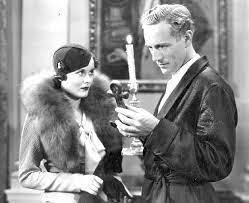


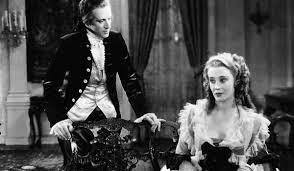

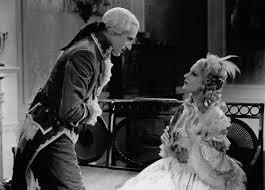
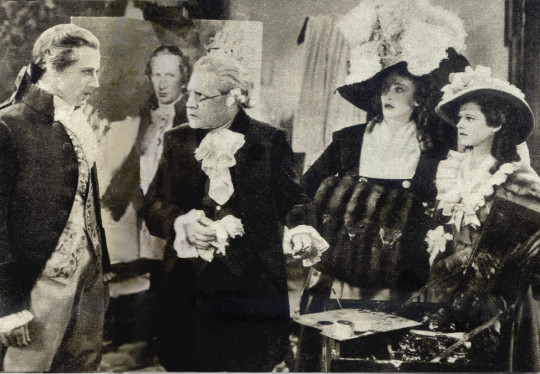
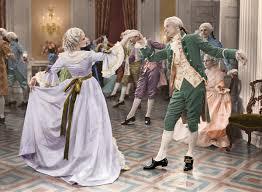

Berkeley Square (Frank Lloyd, 1933). Cast: Leslie Howard, Heather Angel, Valerie Taylor, Irene Browne, Beryl Mercer, Colin Keith-Johnston, Alan Mowbray, Juliette Compton, Betty Lawford, Ferdinand Gottschalk, Samuel S. Hinds, Olaf Hytten, David Torrence. Screenplay: Sonya Levien, John L. Balderston, based on a play by Balderston. Cinematography: Ernest Palmer. Art direction: William S. Darling. Costume design: William Lambert. Film editing: Harold D. Schuster. Music: Peter Benelli, Louis D. Francesco, J.S. Zamecnik.
3 notes
·
View notes
Text
22-324 Moments
Today’s MandalaMoments
“At the end, one didn’t remember life as a whole but as just a string of moments.”
— David Levien
“A happy life is just a string of happy moments. But most people don’t allow the happy moment, because they’re so busy trying to get a happy life.”
— Esther Hicks
“Realize deeply that the present moment is all you have.”
— Eckhart Tolle
Today’s MotD reminds us that our…

View On WordPress
#6x6#abstract mandala#defining moments#ink drawing#mandala#mandala art#mandala artist#mandala drawing#mixed media art#mixed media artist#mixed media mandala#moments#pen and ink#string of moments#the mandala lady
0 notes
Text
Super Pumped Season 2: Release Date Confirmed?
Super Pumped Season 2: Release Date Confirmed?
Following the second season of its anthology series Super Pumped, Showtime will address the issue of social networking. The show’s second season on the premium network is based on Mike Isaac’s upcoming book, according to executive producers Brian Koppelman, David Levien, and Beth Schacter of Billions.
The information was released just days after competitor HBO signed a deal for Doomsday Machine,…
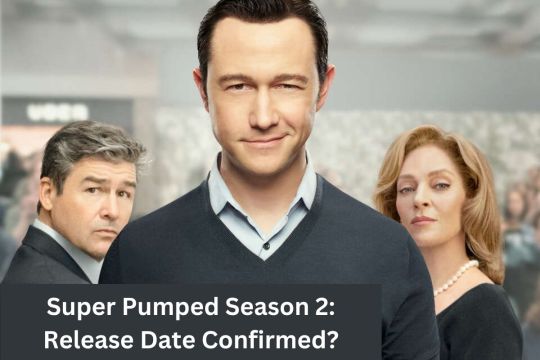
View On WordPress
0 notes